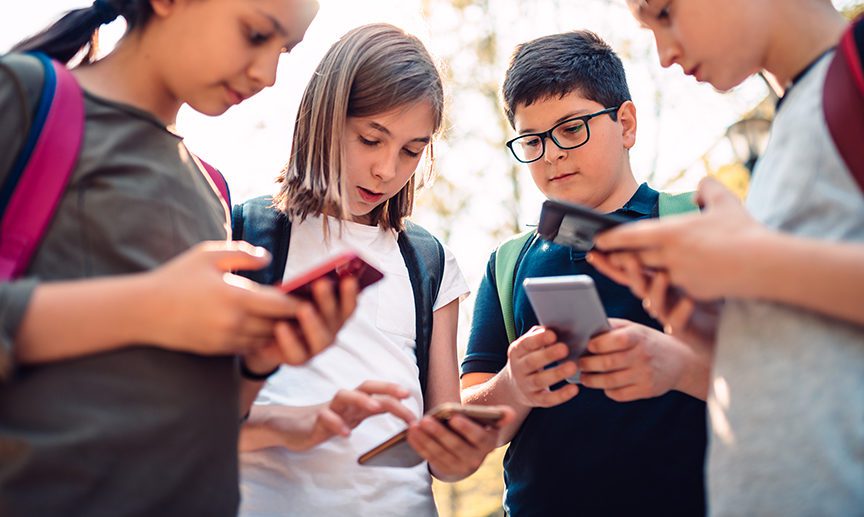By Beth Ann Townsend, Narrative Designer at skillsgapp //
Video Games Are Preparing Our Next Workforce for Global Leadership
In the last post—the first installment to this series—I talk about how video games have the power to bring people together. They disregard distance. And because of that, video games are also able to bridge the gap between cultural differences large and small, creating truly global communities. What’s more, the collaborative nature of video game production ensures endless teachable moments and exposure to diverse perspectives beyond the bounds of the game. Playing video games and developing them can help students learn about themselves and others while picking up skills that will prepare them for a career in any field they pursue.
The global impact of video games on under-resourced students
This past April, Rochester Institute of Technology’s international game prototyping course gave students the chance to collaborate in a virtual cultural exchange program and establish commonalities despite cultural differences. In that same month, the U.S. Department of State announced the conception of a video game diplomacy program, which seeks to connect almost 3,000 students from the US, Bahrain, Israel, and the United Arab Emirates. The exchange program will bring under-resourced teens from Detroit, Atlanta, and New York City into partnership with Middle Eastern students for the united purpose of developing social impact games. In a conversation with The Washington Post about the program, Marie Royce, who has served as Assistant Secretary of State for Educational and Cultural Affairs since 2018, says that “young people have something in common[:] … They play video games. … It’s important to have initiatives around gaming [because] it’s an opportunity to give everybody a chance to have an exchange.”
These recent efforts to utilize the universal medium of games build upon previous initiatives like Digital Play for Global Citizens, a publication from Sesame Workshop and the Center for Global Education at Asia Society. Digital Play for Global Citizens introduces a “vast landscape of digital resources … and suggests some innovative ways to nurture our young learners into macro-minded citizens.” In this increasingly connected world, our up-and-coming workforce must be prepared to answer questions and resolve issues that span the globe, and video games have proven to be effective tools for teaching students collaborative and inclusive practices.
Game development promotes skills development
Cultural exchange projects help to promote peace, growth, and understanding, and through the State Department’s Game Exchange program (in partnership with the nonprofit Games for Change), Royce hopes to foster diplomacy while also building essential skills in students here at home, no matter their income level or personal identity. She addresses the future of Gen Z, stating, “In creating video games, people develop tremendous skills…. [They’re] able to think critically [and] develop STEM skills and … leadership skills.” Collaboration, communication, and compromise are essential to video game production, as creators must work together to realize a cohesive vision, but those soft skills aren’t all that young leaders can grow. Like Royce says, game development gives students the chance to practice math, art, logic, storytelling, coding, and more, because it’s a cross-section of so many different disciplines—disciplines that are needed in the wider world right now.
Gen Z has entered the game, championing diversity and inclusion
In order for the U.S. to ensure the success of our next generation of leaders, workers, and creators, we need to advocate for inclusivity and big-picture thinking alongside the hard skills that get so much attention in schools. Video games—as illustrated by the RIT virtual exchange course, the U.S. State Department’s Game Exchange diplomacy program, and the Joan Ganz Cooney Center’s Digital Play for Global Citizens—can “promote global citizenship,” let us explore new “boundaries, borders, and geography,” and help us all develop “empathy and understanding of diversity.” Game development encourages cooperation with others near and far at the same time it teaches critical skills.
As the president of Games for Change, Susanna Pollack, explains to The Washington Post, video games can transcend mere entertainment and “be significant drivers of social impact,” because they are not confined within any one nation for any one kind of person. “Like other forms of media,” Pollack continues, “games can address important social topics and meet people where they are”—whether that’s in a high school in the USA or one in the UAE. By bringing together people across the globe and empowering students with new skills and knowledge, video game diplomacy programs are achieving a unique blend of civic engagement and practical application that illustrates the versatility of games and their positive impacts around the world.
What talents would you like to see more of in the workforce right now? Collaboration, inclusion, STEM skills, global citizenship…?
